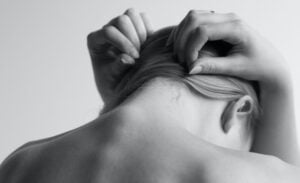Drug Alcohol and Rehab in Australia
Addiction is one of Australia’s most pervasive issues, with millions of sufferers and their families not knowing where to turn.
It’s been estimated that 6,000 people in Australia die from alcohol-related diseases – from 2012 to 2013, there were predicted to be around 400 alcohol-related hospitalisations a day.
Anyone struggling with drug and alcohol addiction in Australia should know that plenty of resources are available to you.
Addiction is not considered a ‘choice’ or ‘moral failing’ on behalf of the addiction sufferer – so the focus of rehab is always on returning agency to the patient.
We’re going to look at the admissions process for drug and alcohol rehab in Australia in a bit more detail here, as well as:
- Physical vs psychological addictions
- The amount of time you’re likely to spend in rehab
- Various detox processes
- Dual diagnoses/co-occurring disorders
- The 12-step approach
- Relapse prevention planning
- Kinds of therapy
- Various aspects of aftercare
Start your journey to beating alcohol or drug addiction at a rehab centre in Australia by calling us on +44 330 333 6197
Physical vs psychological addictions

Let’s start by looking at one of the most important distinctions: the difference between physical addictions and psychological addictions.
Most people seeking alcohol or drug addiction treatment suffer from both, but it’s still important to know the difference between them.
As the name would indicate, psychological addiction is in your head. It involves mental cravings, which are dealt with in addiction treatment through various kinds of therapy and addiction counselling.
On the other hand, physical addictions mainly consist of physical dependence and withdrawal symptoms.
This often occurs after a long period of alcohol or drug addiction, where your body has adjusted to the substances you’re taking or to alcohol.
So when you suddenly take these things away, you may experience withdrawal symptoms like:
- Tremors or delirium tremens
- Nausea and vomiting
- Seizures
- Hallucinations
- A high temperature and/or chills
- Restlessness
- Insomnia
It should be noted that these can vary massively depending on the kind of addiction you have.
Although we can’t go over the exact specific withdrawal symptoms of every existing addiction, we do have further guidance on which categories generally bring about which withdrawal symptoms below.
The symptoms are difficult to overcome – but no matter what addiction you’re suffering from and how severe it is, they have to be addressed and dealt with for you to recover.
To learn more about the nature of addiction and how a rehab clinic in Australia can help you, call us on +44 330 333 6197
How much time will I spend at a drug and alcohol rehab centre in Australia?

This isn’t a question we can answer directly, as it can vary based on so many different factors. It could last any time from a month to a year, depending on:
- How severe your addiction is
- How much help do you need
- What you’re addicted to
- Your choices in types of treatment, such as inpatient treatment (residential rehab) or outpatient treatment (at-home with visits to a centre)
- How well your treatment goes
Generally, we also don’t recommend focusing too much on the amount of time that rehab will take for two reasons:
- It can vary, as we’ve just discussed
- Focusing on it too much can distract from your recovery, as there’s a risk you’ll be distracted from the treatments you’re going through.
We do, however, understand that you might need to know how long roughly it will take on a practical level, so don’t be afraid to ask about it!
For a more accurate prediction of how long your stay at rehab in Australia will take, call us today on +44 330 333 6197
The detox process for drug and alcohol rehab in Australia

As we said earlier, alcohol or drug detox is the first stage of addiction treatment. It’s also amongst the most significant points in the process, as physical symptoms of addiction are often incredibly hard to conquer.
In this process, we’ll slowly reduce your intake, usually over a period of about three weeks. At the same time, you’ll also be prescribed medication, which differs depending on what you’re addicted to.
These are also designed to help with your physical cravings to avoid relapse.
Make sure that your detox is safe and effective with the help of a rehab in Australia by calling our team today on +44 330 333 6197
Alcohol rehab, heroin rehab, cocaine rehab and cannabis rehab in Australia

The main differences between the four of these and other kinds of addiction are the withdrawal symptoms that occur, how they affect you, and the different impacts they can leave on your life.
They also all have different after-effects, especially on health, but that’s another issue.
Alcohol mainly causes physical alcohol withdrawal symptoms of the kind listed above, with some of the most significant being headaches, nausea, vomiting, insomnia, and sweating.
Alcohol detox is one of the most key stages in a successful recovery from alcohol addiction.
Heroin also causes severe physical and behavioural withdrawal symptoms, with fatigue, diarrhoea, and restlessness also added to the list, amongst far deadlier symptoms still.
As with alcohol, heroin detox is an essential step to recovery from heroin addiction.
In both of these cases, prescription drugs will often be used to limit the dangers of withdrawal symptoms. Librium is perhaps the most widely used prescription drug for alcohol detox, whilst heroin-substitute drugs will often be employed to allow the body to slowly adjust to life without opiates.
Cocaine, on the other hand, is known to cause peaks of manic energy, followed by a crash.
The withdrawal symptoms of cocaine addiction are primarily behavioural, with examples including difficulty concentrating, depression and/or anxiety, and vivid, unpleasant dreams. Cocaine detox is not necessary, however, as neither cocaine nor crack cocaine are physically addictive.
Cannabis is similar, having uncomfortable but not deadly withdrawal symptoms that do not require cannabis detox. Instead, addiction treatment services focus on breaking the psychological dependence on cannabis that often occurs.
Whether struggling with alcohol addiction, heroin addiction, cocaine addiction, cannabis addiction or any other form of substance use disorder, allow our team to help by calling us today on +44 330 333 6197
Dual diagnosis at rehab in Australia

Addictions and mental health issues often go hand in hand, as they’re usually caused by trauma – many drugs are also known to cause mental health issues like depression and anxiety.
In this scenario, you may be worried about the help available, thinking your needs are too specific or complex.
But a majority of recovery spaces and organisations are equipped to deal with various types of addiction and mental health issues.
Please don’t let this worry deter you from getting treatment. Your journey towards recovery might be a bit harder, but Rehab Recovery can help you through whatever issues you have, even if you have multiple.
Discover how a drug and alcohol rehab clinic in Australia will work to support your mental health by calling us on +44 330 333 6197
Therapies available at rehab centres in Australia

Now let’s look over some of the most important kinds of therapy and addiction counselling used during drug and alcohol rehab in Australia. Many of these are available both as group therapy and individual therapy.
In no particular order, they are:
- Cognitive Behavioural Therapy (CBT) – Sims to root out the toxic thinking and behaviour patterns known here as cognitive distortions.
- Dialectical Behavioural Therapy (DBT) –Is based on cognitive behavioural therapy but focuses more on emotions.
- Contingency Management – Uses a reward system to keep you on track.
- Motivational Interviewing (MI) – Encourages you to change your behaviour via a series of non-judgmental questions.
- Motivational Enhancement Therapy (MET) – A series of therapies designed to enhance your drive to recover.
- Brief Interventions – Smaller and more flexible meetings held throughout your recovery journey, these are used to ensure that you stay on track.
- Holistic Therapy – This approach to treatment focuses on supporting general well-being, rather than tackling just addiction-related issues. Although the specific treatments offered will depend on the resources of the rehab clinic in question, popular choices include Art Therapy, Music Therapy, Mindfulness, Meditation, Yoga, Acupuncture, Nutritional Counselling and much more.
Experience any and all of these superb treatments at an alcohol and drug rehab centre in Australia by calling us today on +44 330 333 6197
The 12-Step Approach to recovery in Australia

The 12-step approach is also a standard part of many recovery plans. However, it’s primarily used in groups like alcoholics anonymous and narcotics anonymous, which we’ll discuss in detail later.
Although developed by these groups, the lessons of the 12-step approach can be applied to any addiction treatment.
They are:
- Admitting that you’re currently out of control and need help – Is one of the most vital steps of your journey. It can be hard to admit even to yourself that you need help, especially if you’ve been trying to convince yourself that you can handle all of this alone.
- Acceptance of a higher power – This doesn’t necessarily have to be religious, so please don’t let that put you off. For those who aren’t religious, it can be more a case of accepting something greater than yourself.
- A decision to turn your life over to whatever higher power you chose earlier – again, it can be religious but doesn’t have to be!
- Look over the mistakes you might have made and how you might have hurt people – it’s important to assess where things have gone wrong if we want them to turn right.
- Admitting to your chosen higher power and other people, what those mistakes are – beyond accepting the ways you might have harmed both your own life and the lives of others, it’s also important to be open about it with other people.
- Be prepared to change your behaviour and potentially your lifestyle – recovering from addiction is a big life change, which often requires flexibility.
- Asking your chosen higher power for help with the things you can’t manage alone when it comes to; addiction, a mistaken belief that you have everything under control, or that you don’t need help could be deadly. So overall, it’s very important that you reach out as much as you can.
- Following on from our point about accountability: making a list of all the people you might have harmed.
- Is making amends to those people so everyone involved can move forward and heal.
- Your ability to hold yourself accountable will grow by continuing to take a personal inventory and admitting where you’re wrong, which will, in turn, help the relationships you’ve mended to stay stable.
- Continue to improve your understanding of the process – as you go through treatment, your understanding will grow naturally, but it’s also something you should be aware of.
- Remember the lessons you’ve learned throughout your healing process and carry those messages to others. As we’re going to discuss when we talk about aftercare, it’s crucial that you take everything you’ve learned with you, even after your treatment is over. Using what you’ve learned to help others can also be very fulfilling.
Discover how the 12-Step Approach can help you overcome addiction in Australia by calling our expert team today on +44 330 333 6197
Relapse prevention planning in Australia

After you’ve finished rehab, it’s also important that we work to prevent relapse. More specifically, during your aftercare stage, we’ll work to develop a relapse prevention plan.
Experts have agreed that abstinence is far more effective than harm reduction or moderation management, which is why so much effort is put into relapse prevention.
There are a couple of important things that need to be considered to make such a plan effective, including:
- Potential triggers and ways to avoid them
- Any lifestyle changes you might need to make post-rehab
- Tools for recovery in case of relapse and preventative tools like exercising, journaling and support groups
- A plan for if you do relapse
Make sure that you overcome your alcohol or drug addiction once and for all with the help of a rehab clinic in Australia – call us today on +44 330 333 6197
Aftercare & fellowship groups in Australia

It is important to note that the transitional post-rehab stage is as important as any other part of the aftercare process.
It primarily consists of localised treatments designed to help you continue your healing journey and avoid relapse.
A big part of rehabilitation and aftercare is the support/fellowship groups like Alcoholics Anonymous and Narcotics Anonymous.
Building connections and relationships with people in similar situations can really help you to feel less alone.
On a similar note, sharing your story and hearing the stories of others can also be very freeing for a lot of people, especially if you’ve kept everything you’re feeling bottled up this entire time.
Make sure that your stay at an addiction rehab in Australia is matched by a sufficient aftercare service by calling us today on +44 330 333 6197
The admissions process for drug and alcohol rehab in Australia

Professionally supported drug and alcohol rehab is one of the best ways to recover from addiction.
If you’re looking for drug and alcohol rehab in Australia, you first should get in touch with an organisation like Rehab Recovery.
All you need to do is call us or drop a message on our website, and we’ll be able to give you instant advice and support.
From there, we can direct you on where to go for various categories of addiction.
Or, if you’re looking on behalf of someone else, we can help you with support and intervention.
If you’re specifically looking for addiction treatment services, we’ll usually get to know you better, first through initial conversations and then via a formal assessment.
The intention of the latter is to pin down the exact specifics of your situation before we get started.
Then, with (hopefully) the right recommendations in place, you can move forward to the three stages of treatment:
- Detoxification, where you avoid withdrawal symptoms and can start to break down your physical addiction
- Rehabilitation, where you’ll go through a combination of physical and mental health treatments, either in a residential space or at home, with regular visits to a centre
- Aftercare is a transitional stage where you adjust to your new sober life, where you can hopefully manage your addiction better and move forward.
Start the admissions process at your ideal drug and alcohol rehab centre in Australia by calling us today on +44 330 333 6197
Contacting Rehab Recovery
For more information on detox and rehab options in Australia, contact Rehab Recovery today on +44 330 333 6197.
When you contact us, we shall outline the wide variety of treatment options that are available to you in Australia.
This includes both private rehab and statutory addiction treatments in a wide selection of rehab clinics
We also offer access to rehab centres across a variety of locations across Australia and the rest of the world.


